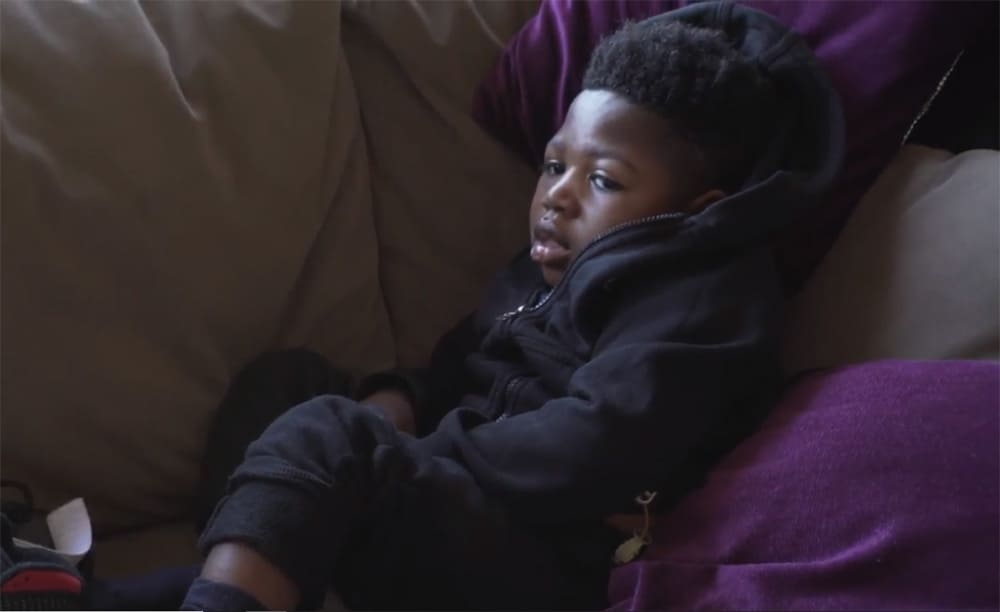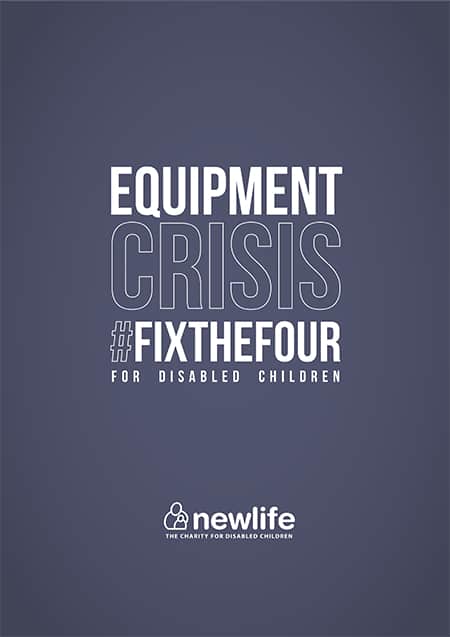Newlife calls on Government to take ‘urgent’ action to end equipment crisis for disabled children

 Newlife the Charity for Disabled Children has published a report about major failings regarding the provision of specialist equipment to disabled children in the UK.
Newlife the Charity for Disabled Children has published a report about major failings regarding the provision of specialist equipment to disabled children in the UK.
The charity is urgently calling on the Government to help those children whose lives are at risk because they don’t have the specialist equipment they need.
In its report, ‘Equipment Crisis for Disabled Children’, launched at the House of Commons on the 26th of November, the charity highlights why children are being deprived of specialist equipment like walking frames, specialist car seats and beds, and has published a practical four-point-plan to fix it.
Sheila Brown OBE, CEO of Newlife and who has two disabled children herself, said: “All children have the right to be safe and free from pain. They have a right to learn and a right to reach their potential regardless of diagnosis or disability.
“But every single day severely disabled and terminally ill children are denied their fundamental rights because existing policies preclude them, or decisions are made based on frugality rather than health and necessity. The result is children are left to suffer in pain, their safety compromised, isolated from the world.”
One of the main points that Newlife is calling for action on is the use of blanket bans by local statutory services, which the charity says is widespread and challengeable in law.
Often used as a way to ration shrinking budgets, a blanket ban means local authorities refuse to provide a particular piece of equipment ‘under any circumstances’. Each authority has its own criteria for applying such bans, for example: no wheelchair assessments for under threes and no walking frames for a child who will never walk independently.
However, the most common is the blanket refusal to fund specialist, protective car seats for disabled children, says Newlife, irrespective of whether there is a medical need for one, with 83 percent of local authorities applying such a ban.
Another key point the charity draws attention to is the exclusion of children on local disability registers.
According to the charity, eight percent of children in the UK have a disability, equating to just over 1.1 million children in total. The Children’s Act 1989 requires all local authorities in England to ‘establish and maintain’ a register of children with a disability in their area.
However, data obtained by Newlife shows less than 11 percent of children are included on local disability registers.
Sheila explained: “Knowing the true number of disabled children in need is crucial. If only 11% are visible to public authorities, it’s impossible to budget and plan resources and services effectively in order to meet the need.
“This also explains why local health and social care services are drastically failing to provide the care, support and equipment they need.”
Medical improvements mean children born with conditions or who develop disabilities because of illness or accidents are surviving, but with very complex needs requiring intensive support and, in most cases, multiple pieces of specialist equipment.
Despite demand for equipment reaching critical levels, a quarter of local statutory services cut spending during 2016/17, emphasises the charity.
Newlife is calling on national and individual local statutory services to work with it to put in place its four-point-plan, which the charity says will change hundreds of thousands of children’s lives:
1. Cease the use of blanket bans for rationing equipment
2. Establish and emergency equipment response service
Local statutory services don’t have an effective emergency equipment response service for children in urgent need. The charity says that this needs fixing to prevent injury, to allow hospital discharge and to relieve pain.
3. Introduce maximum waiting times for equipment assessments across health and social care
Waiting times for assessments for essential equipment are not capped and there are widespread lengthy delays, which means families can wait a long time before their child is prescribed the equipment they need.
4. Ensure every disabled children is counted
Without an accurate measure of the number of disabled children in the UK, health and social care services cannot budget to meet the needs of disabled children. Local authorities must put in place an accurate way to measure the number of disabled children to ensure all needs are met, Newlife concludes.


